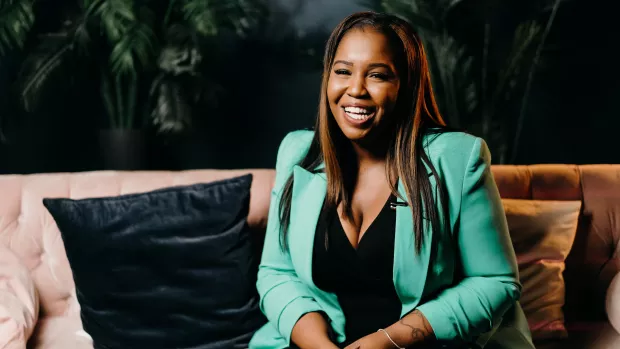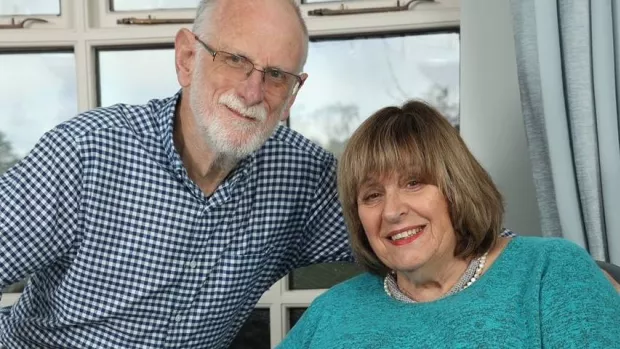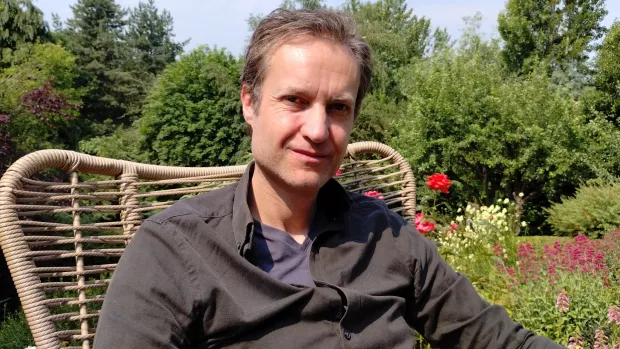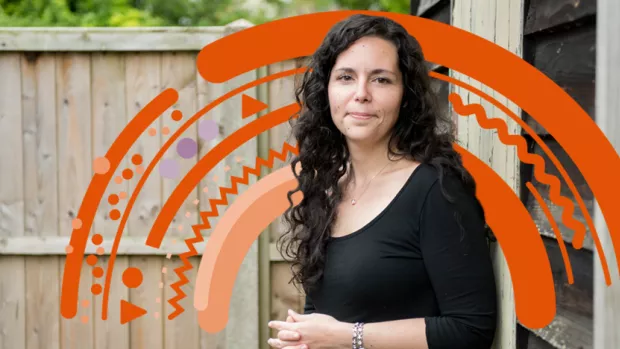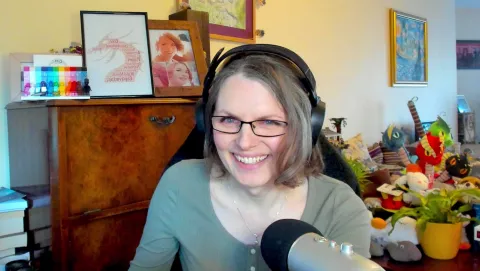
#MSMakesMe… an absolute badass
I’ve been thinking for a while about an experience I keep having whenever I’m in public in my manual wheelchair.
I love my wheelchair. I love rolling at speed down a hill and skidding to a stop on wet leaves before I reach the road. By pushing myself up hills I’m working out and feel myself getting stronger. When I’m out there, listening to some motivating tunes, I imagine myself as some exercising, muscle building, beefcake.
Every time I’m out in the chair someone offers to help. I love these offers of help. They restore my faith in humanity as people go out of their way to make sure I’m alright.
A disabling gaze
Every so often, though, someone offers to help with a particular look in their eye. A look of sympathy and care. That look was articulated directly by a lady responding to me declining their offer of help. The lady squinted, leaned her head to one side, looked down at my seated form and said softly,
“Poor you.”
Whenever this happens, I feel a jarring dissonance, like being brought suddenly and painfully down to Earth. I’m immediately no longer working out, getting my sweat on, seeing ‘gains’. Instead, my life is a tragedy. That tragedy is painted on the mirrored faces of well-wishing onlookers wherever I go. I can almost hear their inner dialogues saying, “It’s such a shame you’re in a wheelchair, and so young. A sad, depressing life confined to a chair. It’s enough to make you cry.”
Reframing how I see disability
It took me a long time to unlearn this sense of disability as deeply undesirable, as inherently tragic. I mean, it's no picnic, MS isn’t my annual holiday destination of choice. But it's a part of me just as any other. While it’s an unusual feature of my life, challenging to manage at times, it's nonetheless a part of my identity.
I spent a great deal of time running away from the realisation that I am, in fact, disabled. And learning, also, that being disabled isn’t inherently a bad thing.
Now, I don’t see my MS as negative any more than I see any other part of me as inherently negative. They’re all just parts of what makes me who I am.
In fact, I might go so far as to say that MS makes my life something of an extreme sport. Walking anywhere is now like walking up the side of a mountain. Cooking has become akin to dancing in a hurricane. Holding a meeting with fatigue is like trying to resist panicking while being stalked by a predator.
Far from being pitiful, MS makes us badasses.
Being seen
If you’re doing something, anything, while working against the barriers this disease imposes then I have the deepest respect for you. MS really didn’t know who it was messing with when it came your way, did it?
Interestingly, every so often I meet someone who offers to help who has a totally different look in their eye. A look that communicates respect. An appreciation of the barriers we face and our willingness to strive to overcome them that just being out and doing ‘something’ evidences.
These are people with some experience. They’re the coach in our corner. They know the challenges we face and build us up to face them. It's this face I need to see reflected back at me in onlookers and, in lieu of that happening, it’s the face I'll don.
So next time someone stops to help me, with that commiserating look on their face, I’ll politely decline, give them a nod and confidently say,
“I’ve got this."

